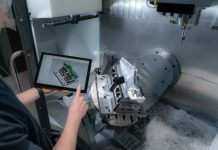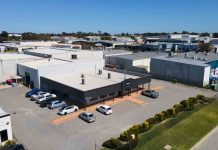
SYSPRO, a global provider of enterprise resource planning (ERP) software for the manufacturing and distribution industries, has released new research highlighting both the eagerness and the ongoing challenges manufacturers face in adopting smart technologies.
The data, compiled from three separate sources – including a survey of 128 manufacturers during the 2024 SPARK Customer Roadshow, responses from a 2024 Trends Webinar, and more than 360 data points gathered in collaboration with research firm Frost & Sullivan – reveals a complex picture of technological advancement in the sector. Around 20% of respondents were from the Asia Pacific region.
According to SYSPRO, many complex manufacturing companies are beginning to embrace smart technologies such as automation and robotics (37%), artificial intelligence and machine learning (19%), and the industrial internet of things (IIOT) (18%).
However, these advances are tempered by ongoing difficulties with technology integration and labour shortages.
“Manufacturers clearly see smart technology as the key to overcoming workforce shortages and supply chain disruptions. However, adoption is still challenging,” said James Robinson, head of services for Asia Pacific at SYSPRO.
“SYSPRO’s ERP solutions are designed to simplify this transition, providing the flexibility and integration needed for real-world manufacturing environments.”
The findings show a strong forward-looking commitment to digital transformation. Forty per cent of respondents identified AI and automation as their top priority for 2025, with another 29% focused on improving digital integration and real-time insights, and 24% aiming to manage costs while adopting new technologies.
Despite these ambitions, technical hurdles remain. Nearly a third (30%) of manufacturers reported difficulties integrating new technology into their operations. Additional concerns included outdated systems (15%) and limited scalability (15%).
China was singled out in the report as a frontrunner in adopting smart manufacturing technologies. Forty-five per cent of Chinese manufacturers surveyed had already implemented such systems, outpacing their U.S. counterparts.
When asked about specific plans for AI, 80% of surveyed manufacturers said they were either investing in or planning to implement AI technologies in the near term.
Twelve per cent have already deployed AI or are currently doing so, while 57% are researching practical applications. Another 11% plan to deploy within the next year.
Yet even with this strong intent, operational limitations persist. Forty per cent of manufacturers noted difficulty in accessing real-time data for decision-making.
While analytics are seen as a potential solution, only 23% identified analytics implementation as a top priority, and 24% admitted to not using analytics tools at all.
Skilled labour shortages also continue to be a leading concern. Thirty per cent of manufacturers listed workforce challenges as their top expected issue in 2025, followed by supply chain disruptions (23%) and cybersecurity (12%).
Matthew Day, Chief Information Officer at Langs Building Supplies in Brisbane, said his company has made strides in overcoming these hurdles.
“I oversee all the business-critical IT systems in our production environment. We have recently completed a successful upgrade of our enterprise IT infrastructure, which provides us with remote access in a hybrid cloud setting,” he said.
“The subsequent improvements to digital integration across our environment enable us to utilise SYSPRO ERP for real-time insights and cost management while incorporating advanced technologies such as AI and automation into our production facility.”




















